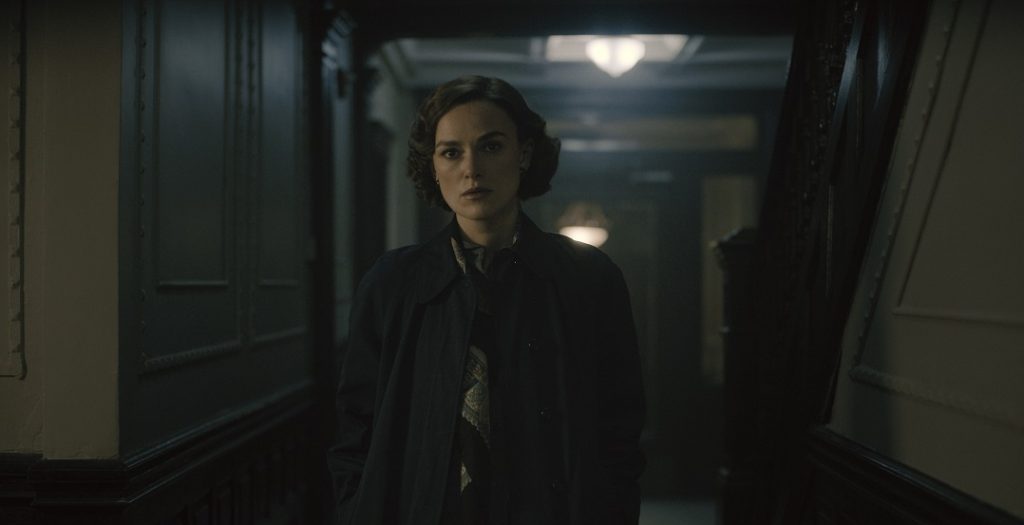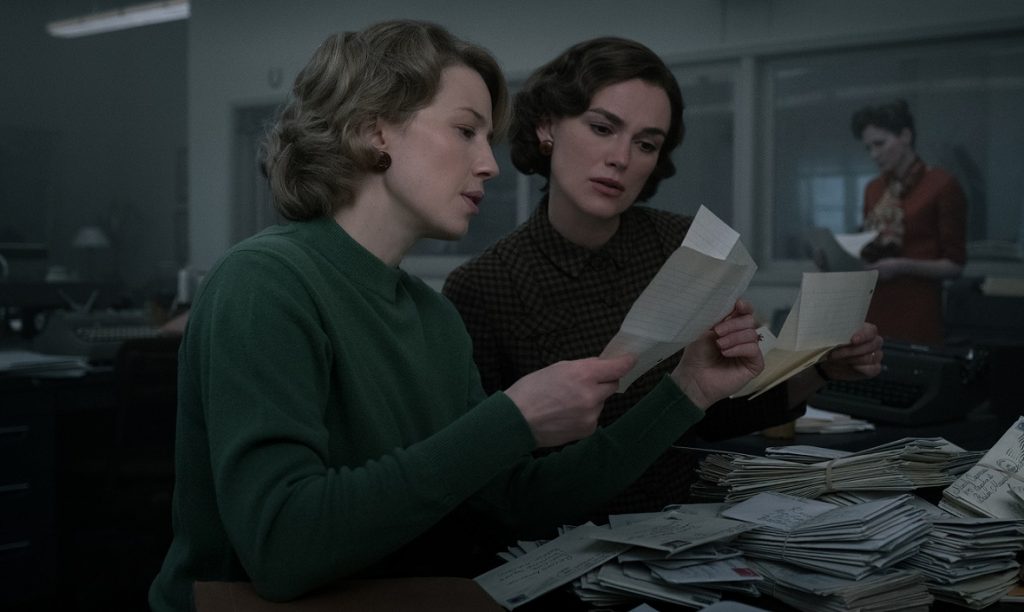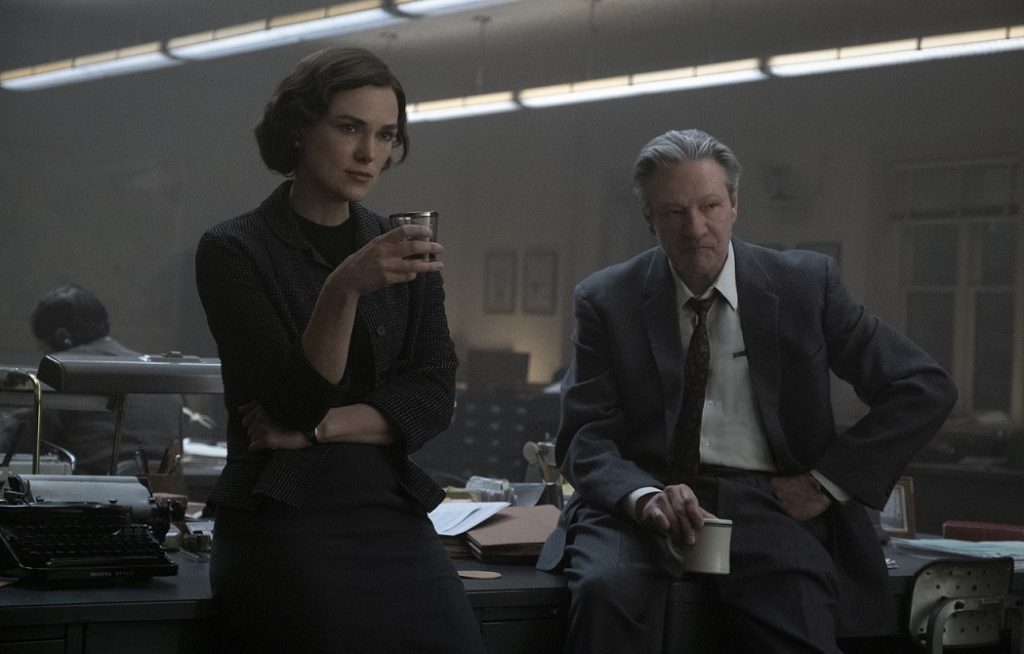
Running Time: 113 minutes
This film from 20th Century Studios is premiering March 17th exclusively on Hulu.
In the early 1960s, the Greater Boston area was terrorized by a killer who randomly targeted and strangled women. A 1968 feature film chronicled the figure and was released just a year after a suspect was successfully prosecuted for the crimes. In the years that have passed, more theories have arisen about the murders. Boston Strangler is “inspired by” the exploits of the reporters who first broke the story and tries to present a new take on the events. The movie is handsomely mounted and well-acted, but is neither as chilling or gripping as hoped for.

Loretta McLaughlin (Keira Knightley) is a journalist frustrated with her position writing for the Lifestyle section of a local paper. After learning about murder in her neighborhood, she investigates further and sees connections between victims. Loretta pesters her editor Jack Maclaine (Chris Cooper) to write a story. He eventually relents and she breaks the story on the Boston Strangler. After blowback from the police department, fellow journalist and established crime scribe Jean Cole (Carrie Coon) is assigned to co-write features on the slayings. The pair become fast friends and Loretta learns a great deal about investigative journalism. Her lead’s obsession with work and articles critical of the police lead to conflicts with her husband James (Morgan Spector) and officials working the case like Detective Copley (Alessandro Nivola).
The film avoids explicitly depicting the gruesome murders, instead focusing on sound and a brief image or two of the crime. Initially, it’s an effective tactic, particularly when a neighbor hears a disturbing fracas in a next-door apartment. But, as the pattern of slayings and randomness is established, one simply sees a new character open a door and say a mere line or two before their deaths. Repetition and predictability set in, lessening the tension. And while this reviewer hates to make comparisons with similarly-themed movies, there are a couple of moments that seem modeled after bits from Zodiac, the 2007 David Fincher thriller. One scene involving Loretta interviewing a potential suspect plays out so similarly to the above title that it’s distracting and removes any sense of anxiety from the moment.

As for the central plotline about the journalists, early sequences detail Loretta’s struggle to be taken seriously by her employers and officers at the crime scene. It’s a new detail that is intriguing to see. Another interesting aspect is the brusque protagonist’s relationship with her husband. He slowly turns from surprisingly supportive to antagonistic as the lead focuses on work and leaves her spouse and children adrift. Curiously enough, the more seasoned writer Jean Cole comes across as more engaging. While the pair have similar life issues, Jean’s sharp wit and moments of her calming Loretta and showing her the ropes are enjoyable.
As a central suspect arises, the movie also tries to differentiate itself from the previous cinematic adaptation. It seems that in the years since the actual events, there have been numerous alternative assertions about what occurred and this film fully promotes the more exaggerated but unconfirmed ideas as fact. The story ultimately details Loretta uncovering what is almost a conspiracy theory. It has been so long since the killings, no one can use DNA technology to prove that all 13 were the work of one individual (one surviving DNA sample did, however, recently confirm the man successfully tried was responsible for one of the deaths). However, the film attempts to concoct a more elaborate scheme and add a sense of mystery that seems forced.

As mentioned, Boston Strangler has some good moments when it focuses on the personal lives of the leads and how they made their mark in a department filled almost exclusively with men. A few of the early slayings are also chillingly depicted. But the movie starts to struggle when borrowing bits from other, stronger true crime titles and the final resolution feels concocted to connect all events into a single unified theme. It’s a decent movie, but one that feels flat in spots and can’t overcome an unsatisfying pay-off.


